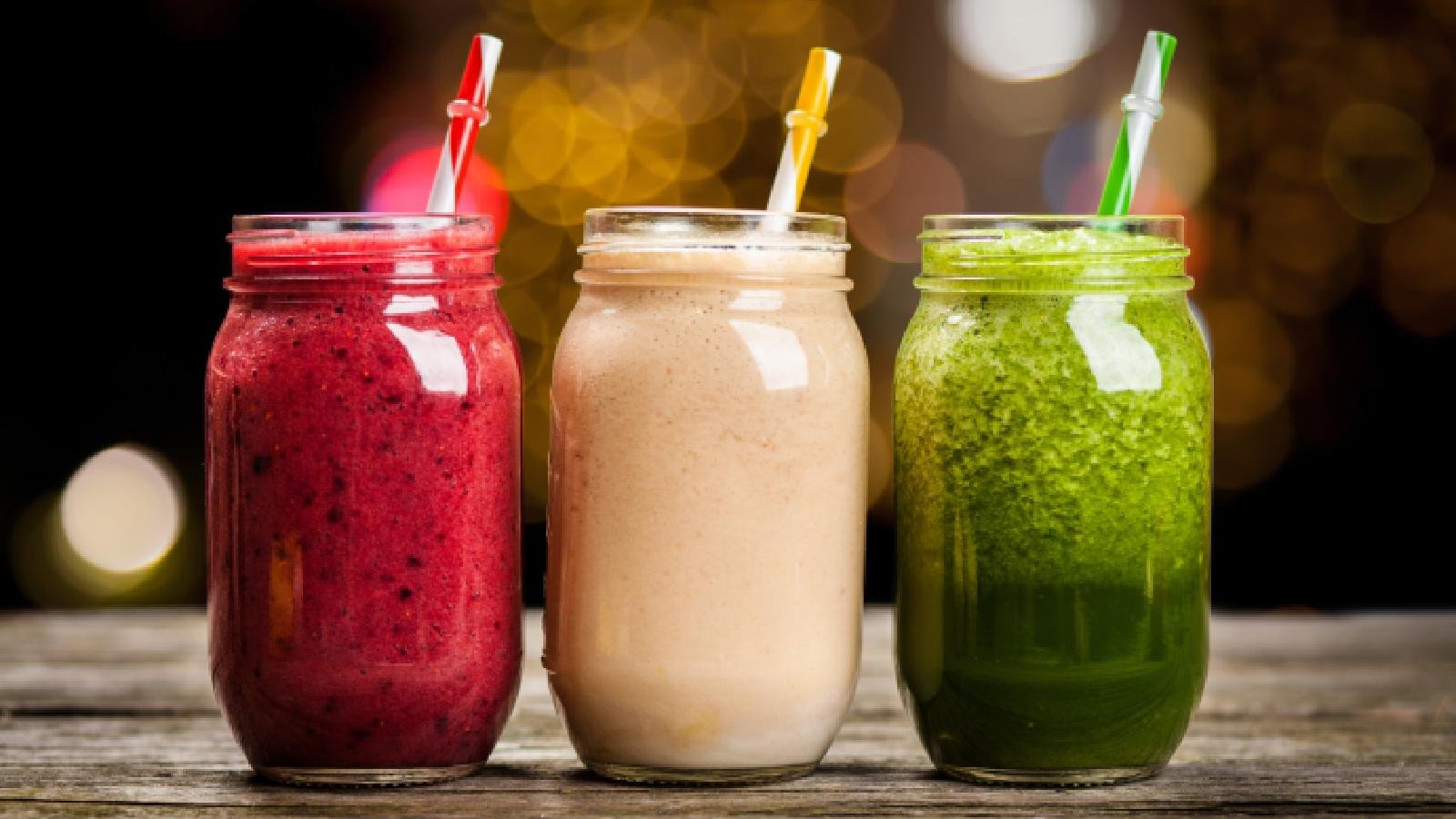Are you confused about which one to choose: Smoothies, juices, and shakes? Read on to know which one is the best drink for breakfast!
Do you often wish you had more time to prepare elaborate meals for a healthy breakfast and to pay attention to what you eat? Unfortunately, not every one of us can afford to have the time to prepare a lavish meal in the morning. Well, all it takes to enjoy a healthy and delicious breakfast is to incorporate some nutritious morning beverages! These beverages are simple to prepare and loaded with health benefits, that keep recharged and energised throughout the day. However, choosing the right breakfast drinks is important as it impacts one’s health. So let’s compare a few of everyone’s favourites: smoothies vs juices vs shakes.
Smoothies Vs Juices Vs Shakes: What’s the difference?
Shakes
Typically, shakes include a combination of liquid such as milk, dairy alternatives, and protein sources such as protein powder, yogurt, or nuts. They often have certain fruits and flavourings in them. Shakes are renowned for their protein content, which helps promote muscle repair and growth.

Juice
Extracted from fresh fruits or vegetables, juices include removing the fibrous content, leaving behind the liquid essence. While providing an instant dose of vitamins and minerals, juices may lack the fibre found in whole fruits or vegetables.
Smoothies
It mainly involves a blend of fruits, vegetables, yogurt, or milk (along with seeds, nuts, or protein sources). Retaining the whole fruit or vegetable content, smoothies are rich in fibre that promotes better digestion and improve energy levels.
How to choose the best breakfast drink?
Before selecting a breakfast drink, consider personal dietary goals, health conditions, and nutritional requirements. Factors such as sugar content, fibre intake, protein needs, and overall calorie count should guide decision-making, says Nutritionist Manjula Sridhar.
Shakes Vs Juices Vs Smoothies: Know the pros and cons?
Smoothies
Pros
- Whole components: Whole fruits and vegetables are often used in smoothies to add fibre components and maintain the natural health benefits of the components.
- Fibre content: Smoothies’ high fibre content promotes satiety, which keeps you feeling fuller for longer.
- Customisation: A smoothie can be made with a variety of additions, such as fruits, vegetables, yoghurt, nut butter, and seeds.
Cons
Select Topics of your interest and let us customize your feed.
- Might increase sugar level: Be careful when using extra sugars as they can increase the level.
- High in calories: Portion control is essential because smoothies can have a high-calorie content depending on the components.
Shakes:
Pros
- Good source of protein: Shakes, especially protein shakes, are a simple way to increase your intake of protein, which is beneficial for both muscle growth and satiety.
- Convenient: Shakes are quick and portable, making them ideal for breakfasts on the go.
Cons
- High calorie content: Shakes can be heavy in calories, especially if they contain a lot of fat or sugar.
- Contains processed ingredients: Store-bought shakes may contain additives or preservatives.
Also Read: Morning drinks for diabetics: 8 healthy beverages to have on empty stomach
Juices
Pros
Boost your nutrient consumption: Freshly squeezed juices provide a concentrated dose of minerals and vitamins.
Keeps you hydrated: Juices, particularly those that are high in fruit and vegetable water content, helps you keep yourself hydrated.
Cons
Lack of fibre: Juicing fruits and vegetables cause them to lose some of their fibre content, which is bad for the health and fullness of the digestive system.

Shakes Vs Juices Vs Smoothies: Which one is healthier?
The healthiest choice among these breakfast drinks depends on the health goals and the dietary needs of an individual. Smoothies, which incorporate whole fruits and vegetables, tend to offer a more balanced diet due to their fibre content. However, careful ingredient selection and portion control are paramount.
Ultimately, crafting a nutritious breakfast drink involves selecting high-quality ingredients, minimising added sugars, and prioritising whole food sources to optimise nutritional benefits.
Each breakfast drink – shakes, juice, and smoothies – offer unique nutritional benefits. Understanding their differences, considering personal health goals, and selecting nutrient-dense ingredients are key to creating a wholesome morning beverage.







